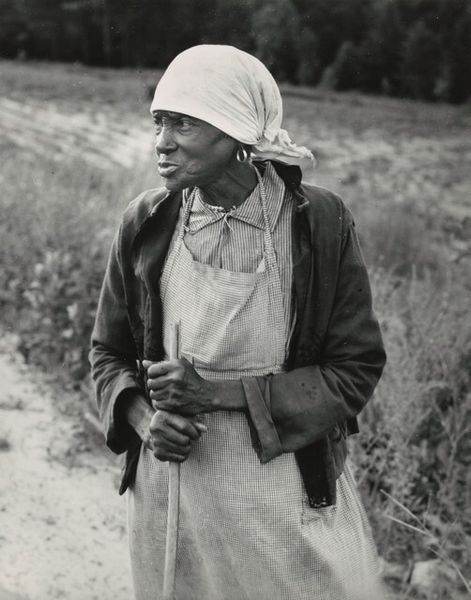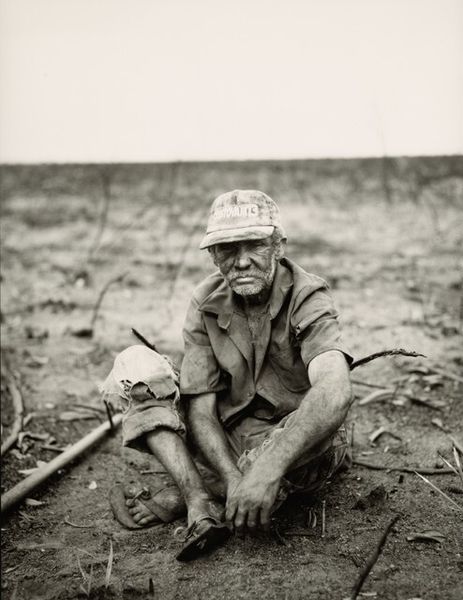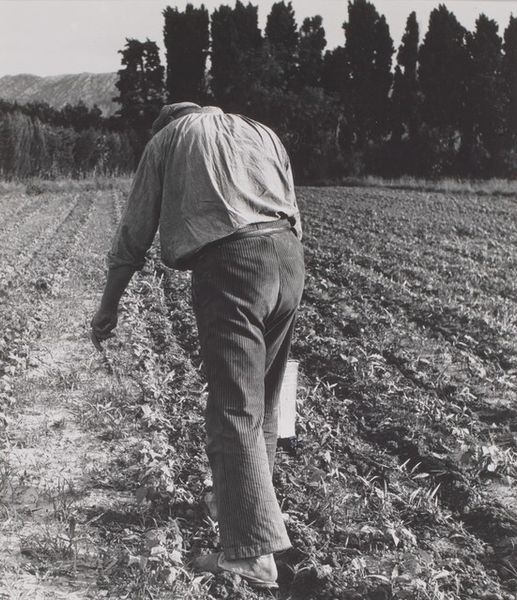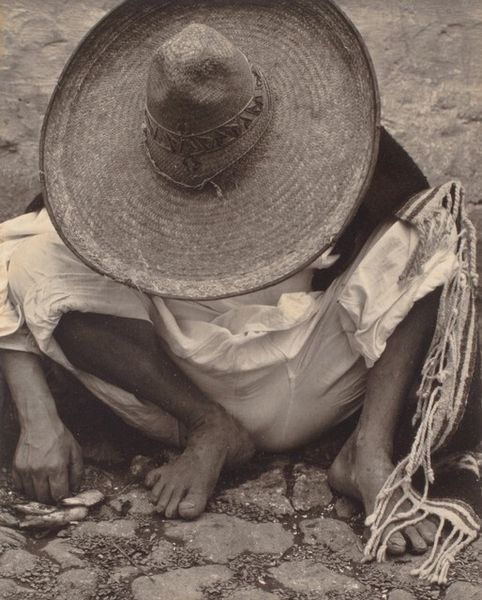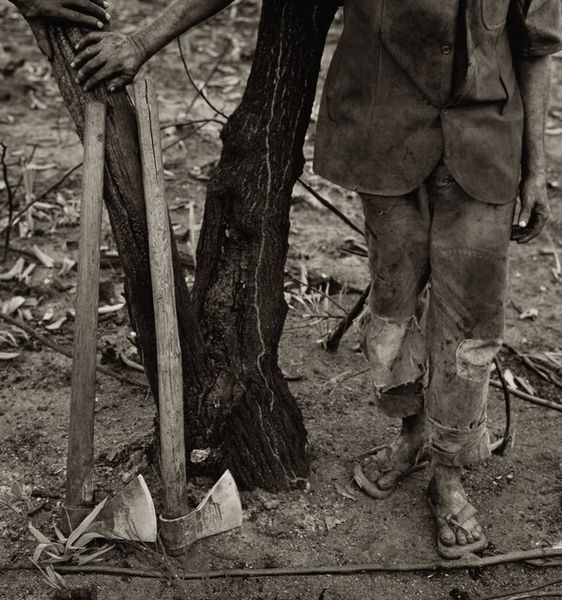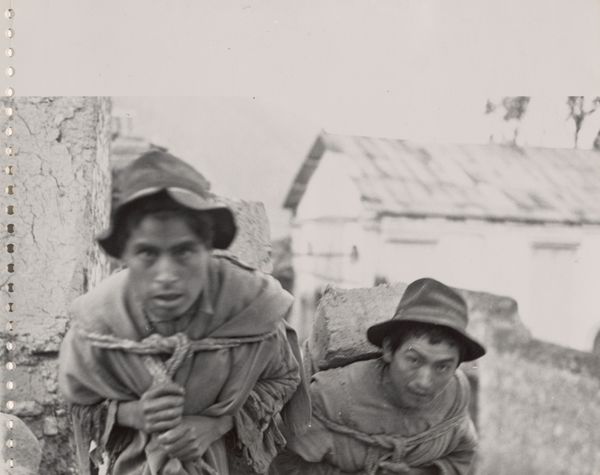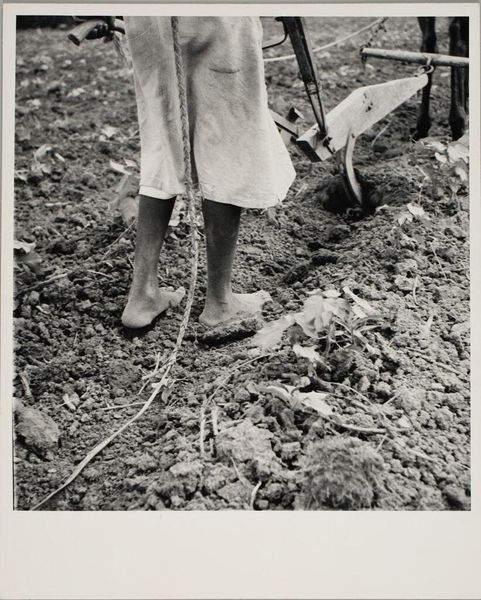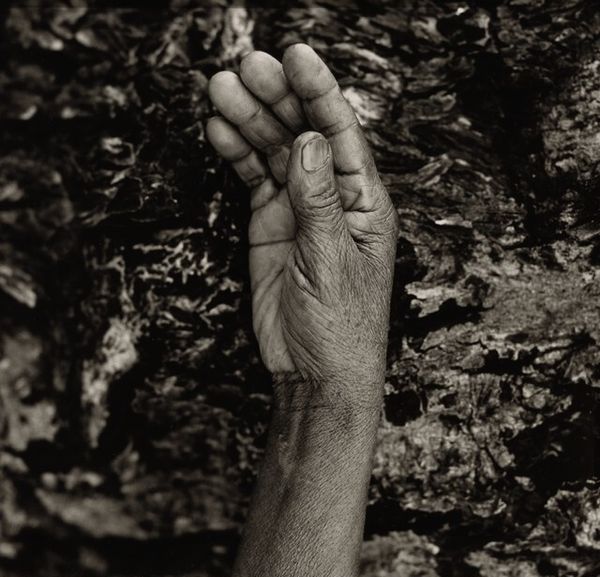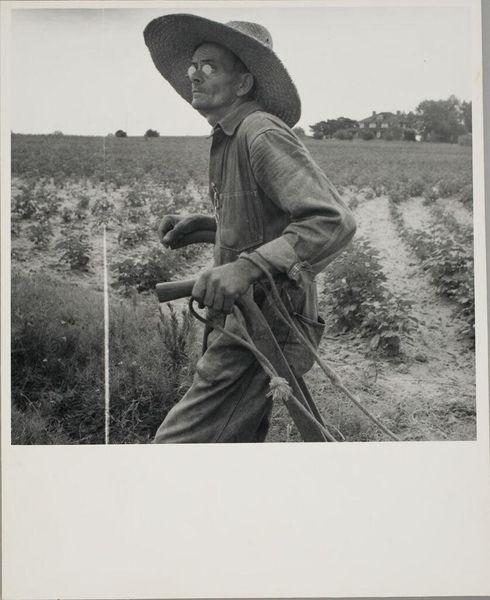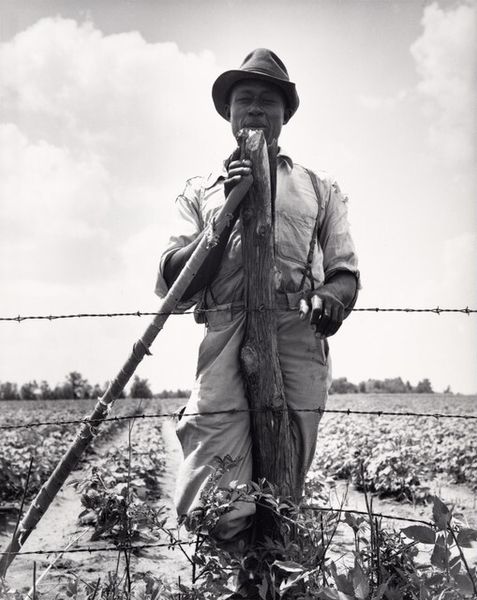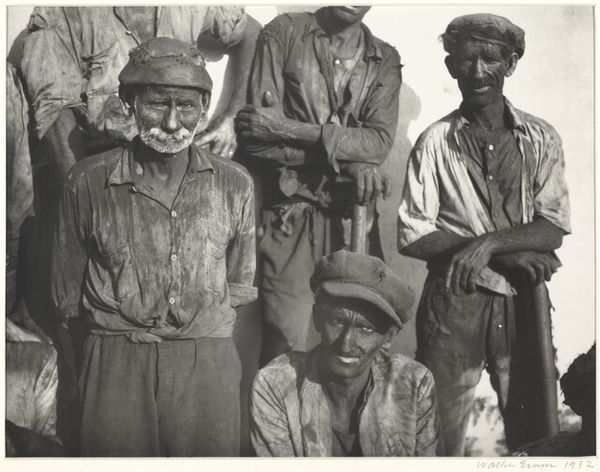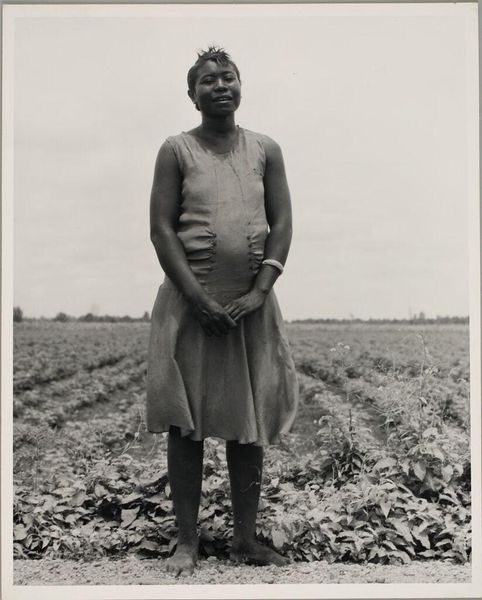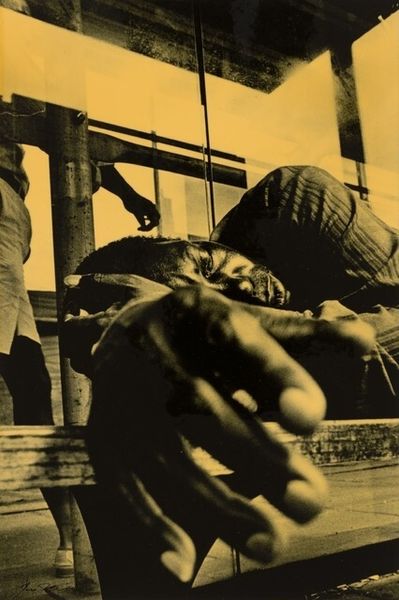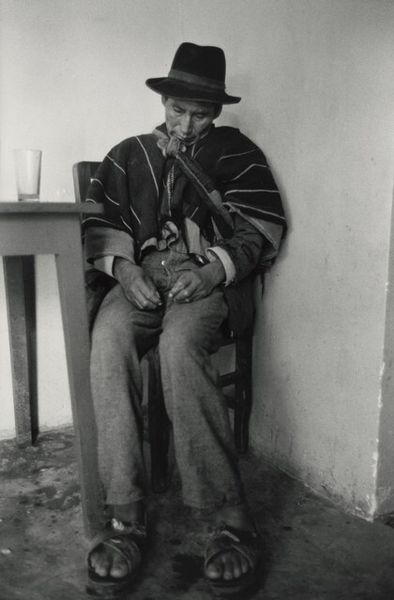
photography, gelatin-silver-print
#
portrait
#
african-art
#
landscape
#
social-realism
#
photography
#
gelatin-silver-print
#
monochrome photography
#
monochrome
#
realism
#
monochrome
Dimensions: image: 24 × 18.75 cm (9 7/16 × 7 3/8 in.) sheet: 25.4 × 20.32 cm (10 × 8 in.)
Copyright: National Gallery of Art: CC0 1.0
Dorothea Lange made this photograph of a formerly enslaved woman in Alabama. Lange was working for the Farm Security Administration, which was responding to the economic devastation of the Depression era. This image uses the visual language of documentary photography to make a point about the legacy of slavery. Consider how the composition emphasizes the woman's dignity despite her apparent poverty. The setting, probably farmland, connects her to the history of labor and the landscape. The photograph invites us to reflect on the long shadow of slavery in the American South. Even generations after emancipation, formerly enslaved people faced discrimination and economic hardship. Lange’s images brought these issues to the attention of a wider public. Understanding this photograph requires us to research the history of slavery, the Jim Crow South, and the role of documentary photography in social reform. By looking into these historical contexts, we can better understand the image's commentary on the social structures of its time.
Comments
No comments
Be the first to comment and join the conversation on the ultimate creative platform.
